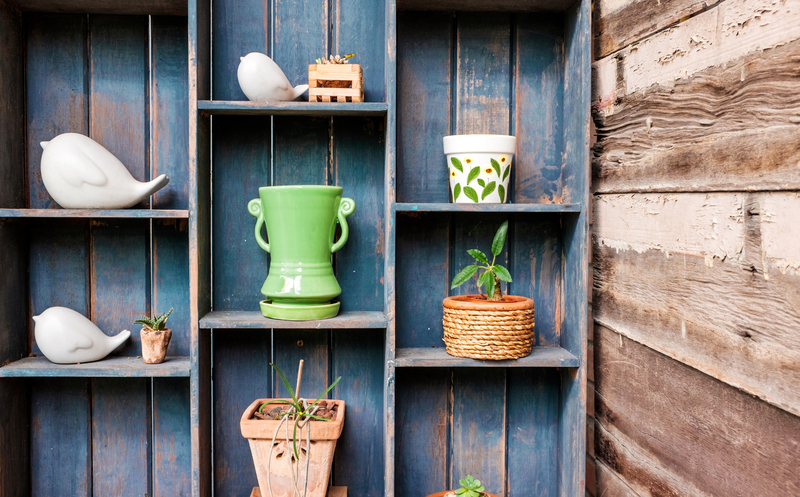Decoding Hard Rubbish: Your Path to Effective Disposal
In a modern world obsessed with consumption, managing waste efficiently has never been more critical. Among various types of waste, hard rubbish disposal often presents unique challenges. Whether it's old furniture, outdated electronics, or bulky items that have outlived their usefulness, decoding the secrets of effective hard rubbish disposal can significantly impact the environment and your local community.
Understanding Hard Rubbish
Before diving into disposal methods, it's essential to understand what qualifies as hard rubbish. Generally, hard rubbish refers to bulky waste items that cannot be disposed of through regular waste collection services. These items typically require special handling due to their size, material, or potential environmental impact.
Common Types of Hard Rubbish
- Old Furniture: Items such as sofas, chairs, and tables that are no longer in use.
- White Goods: Large household appliances like refrigerators and washing machines.
- Mattresses and Bedframes: Items that need careful disposal due to hygiene concerns.
- Electronics: Outdated or broken gadgets like TVs, computers, and mobile phones.
- Building Materials: Leftover construction materials such as bricks, timber, and metal.

The Environmental Impact of Hard Rubbish
Improper disposal of hard rubbish can lead to severe environmental consequences. When left in landfills, many of these items take decades to decompose. Additionally, some contain harmful chemicals that can leach into soil and water, threatening ecosystems and human health.
The Carbon Footprint
The production and disposal of these items contribute significantly to carbon emissions. Understanding the carbon footprint associated with hard rubbish disposal is critical in our collective effort to combat climate change. Opting for more sustainable practices can significantly reduce this impact.
Your Guide to Effective Hard Rubbish Disposal
Now that we understand what hard rubbish is and its environmental implications, let's explore various methods to ensure effective and responsible disposal.
Sort and Organize
Begin by categorizing your hard rubbish. This step will help streamline the disposal process and identify items suitable for recycling or repurposing. Items should be grouped by material--metal, wood, plastic, etc.--to simplify subsequent steps.
Donations: Extend the Life of Your Items
If your items are still in usable condition, consider donating them to local charities or organizations. Many non-profits accept furniture, electronics, and appliances that can benefit those in need. Donating extends the lifecycle of these items and is an excellent sustainable practice.
Recycling: A Step Towards Sustainability
Many hard rubbish items can be recycled, significantly reducing environmental harm. Electronics, for instance, often contain valuable metals that can be extracted and reused. Similarly, wood and metal can be repurposed. Contact local recycling centers to understand what materials they accept and their specific procedures.
Utilize Council Services
Most municipalities offer hard rubbish collection services. These services are often free or involve a nominal fee. Scheduled throughout the year, these collections ensure safe and environmentally friendly processing of waste by professionals.
Hire Professional Hard Rubbish Removal
If municipal services are unavailable or your items require immediate removal, consider hiring professional hard rubbish removal services. Although it may come at a cost, these companies ensure efficient sorting, recycling, and disposal in compliance with environmental standards.
Creative Repurposing and Upcycling
Another exciting avenue for dealing with hard rubbish is through creative repurposing and upcycling. Here's how you can breathe new life into old items:
Furniture Makeover
Transform old furniture into unique pieces with a bit of creativity and effort. A splash of paint, new upholstery, or modifying the structure can create one-of-a-kind items tailored to your needs.
DIY Projects
Engage your creativity with DIY projects using materials from hard rubbish. For example, pallet wood can be transformed into garden furniture, and old windows can become chic photo frames.

The Legal Angle: Ensuring Compliance
Understanding legal obligations related to hard rubbish disposal is vital. Disposing of certain items improperly can incur fines or other legal repercussions. Always check local regulations and guidelines to ensure your disposal methods comply with the law.
Hazardous Waste Disposal
Electronic waste and substances like paint fall into the category of hazardous waste. They require special disposal methods to prevent environmental and health risks. Always check your local council's guidelines for disposing of hazardous materials.
Future Trends in Hard Rubbish Disposal
The landscape of hard rubbish disposal is continuously evolving with technological advancements and growing environmental awareness. Future trends indicate a shift towards more sustainable practices and increased integration of green technologies.
Smart Waste Management Systems
Innovative technologies are being developed to manage waste more effectively. From AI-driven sorting systems to apps that help users locate the nearest recycling centers, technology is making sustainable waste management more accessible.
Community Involvement and Education
Communities are placing greater emphasis on education and awareness around waste disposal. By engaging residents through workshops and local events, these initiatives foster a culture of responsibility and environmental stewardship.
In conclusion, navigating the labyrinth of hard rubbish disposal requires a blend of awareness, responsibility, and innovation. By adopting sustainable practices and staying informed about effective disposal methods, you not only contribute to a cleaner environment but also inspire those around you to follow suit. Let's all aim to make a collective difference--because every small action counts in our path towards sustainability.